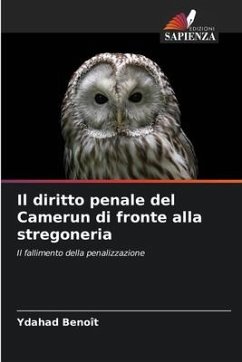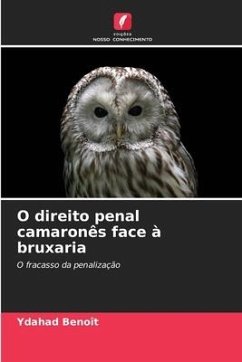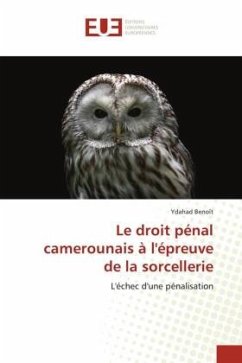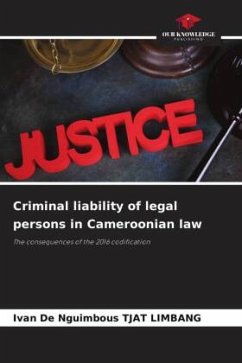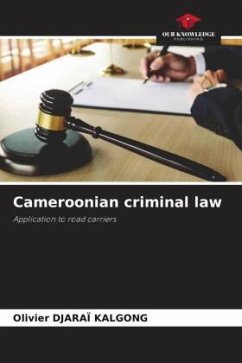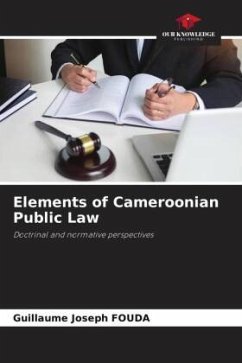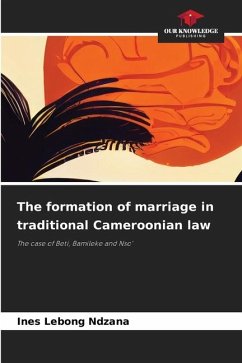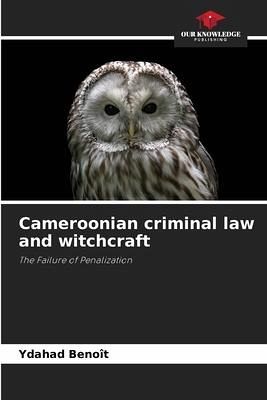
Cameroonian criminal law and witchcraft
The Failure of Penalization
Versandkostenfrei!
Versandfertig in 6-10 Tagen
45,99 €
inkl. MwSt.

PAYBACK Punkte
23 °P sammeln!
The criminal law is the most radical response of society to the most serious attacks on its most fundamental values. Witchcraft is one of these threats to public order. It is for this reason that the Cameroonian legislator has been willing to deal with it by the bill of articles 251, 278 (2) and 279 (2) of the penal code. It will soon become clear that the criminal justice system is unable to deal with witchcraft issues in a serene manner. Between acquittals and convictions without conviction, criminal justice seems to be lost. How can we explain this loss of criminal justice? Our work provide...
The criminal law is the most radical response of society to the most serious attacks on its most fundamental values. Witchcraft is one of these threats to public order. It is for this reason that the Cameroonian legislator has been willing to deal with it by the bill of articles 251, 278 (2) and 279 (2) of the penal code. It will soon become clear that the criminal justice system is unable to deal with witchcraft issues in a serene manner. Between acquittals and convictions without conviction, criminal justice seems to be lost. How can we explain this loss of criminal justice? Our work provides a modest answer to this question. Witchcraft defies the fundamental rules of modern criminal law, both in terms of substance and form. In other words, the problem comes from the inadequacy between modern Cameroonian criminal law and a complex criminal reality.




